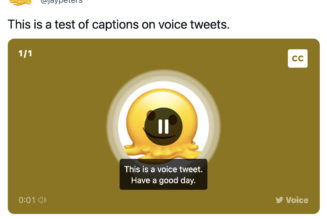
Just over a year ago, I spent some time in Austin meeting with Google contractors. They had been hired through Accenture to moderate some of the most disturbing content on YouTube: videos that contain violent extremism, including murders and acts of terrorism. Several told me they had either been diagnosed with or were suffering from symptoms of post-traumatic stress disorder. The people I talked with made about $37,000 a year, and several had immigrated to the United States from the Middle East. Many found their working conditions intolerable, but they feared speaking out publicly for fear they would be fired.
They were, in short, the sort of people who benefit from membership in a union. But with a handful of exceptions, the labor movement has made few inroads in the world’s most valuable companies. White-collar workers earn high salaries, enjoy world-class perks, and should they ever grow unhappy, have ample opportunities to get lucrative jobs elsewhere. And the blue-collar workers who support and enable much of their work have been outsourced to companies like Accenture, making them ineligible for collective bargaining under the National Labor Relations Act.
These and other factors have prevented unions from forming inside the tech giants, even as tensions between workers and their employers have risen across the industry. But not anymore: a small number of Googlers announced on Monday that they have formed an unconventional union, and if successful, it could upend labor relations across the industry.
The initial group of 230 Googlers is not immediately seeking ratification for their union, which is being supported by the 700,000-member Communication Workers of America through the National Labor Relations Board. As such, the Googlers will not have collective bargaining rights. But the union does include contractors, greatly expanding its base of potential members. (Google has 123,000 full-time employees, and 130,000 contractors.)
Nitasha Tiku introduces us to the Alphabet Workers Union in The Washington Post:
The Alphabet Workers Union will have an elected board of directors and paid organizing staff members, according to the group’s news release. Members will pay 1 percent of total compensation, which includes salary and equity. A representative declined to say how many of the 230 or so members are full-time employees versus contractors.
“This union builds upon years of courageous organizing by Google workers,” Nicki Anselmo, Google program manager, said in a statement that referenced the company’s decision not to renew a Pentagon contract to analyze drone footage after employees protested. “From fighting the ‘real names’ policy, to opposing Project Maven, to protesting the egregious, multi-million dollar payouts that have been given to executives who’ve committed sexual harassment, we’ve seen first-hand that Alphabet responds when we act collectively.”
If the arrival of an Alphabet union, no matter how modest, seems surprising, perhaps it shouldn’t be. Collective Action in Tech’s Clarissa Redwine points out that organizing efforts inside Google have been building for some time — and have been met with increasing resistance from management:
In 2017, security guards at Google and Facebook had their union recognized and fought through a long contract negotiation. In 2019, Google cafeteria staff employed by vendor Bon Appetit won their union election. In September 2019 a group of 80 contract office workers in Pittsburgh voted to join the United Steelworkers, forming Google’s very first office worker union. But shortly after these workers won their union, the company that contracted these workers to Google outsourced their roles to Poland, decimating the union’s bargaining unit in retaliation for unionizing.
Since then, Google has ramped up its anti-union strategy. In November 2020, Google illegally fired four workers for organizing. In an attempt to further chill worker organizing, the company has shut down key channels for challenging leadership, tracked expressions of dissent, and hired an anti-union firm.
The subsequent forced resignation of AI researcher Timnit Gebru last month only further galvanized organizing efforts inside the company.
“We’ve always worked hard to create a supportive and rewarding workplace for our workforce,” Kara Silverstein, Google’s director of people operations, said in a statement. “Of course our employees have protected labor rights that we support. But as we’ve always done, we’ll continue engaging directly with all our employees.”
But Isaac Clerencia, a senior site reliability engineer who has worked at the company since 2010, told me he joined the union after coming to feel like managers had grown gradually less responsive to the workforce over time. “I feel like the culture has changed significantly,” he said. “It used to be possible to raise your voice internally and maybe get Google to change some decisions. [Now] it seems harder and harder.”
To be sure, the Alphabet union is tiny relative to the company’s total number of employees. Much of the early discussion around the effort has focused on how powerful the union can be given its unconventional structure. The Markup’s Adrianne Jeffries, a longtime chronicler of Google, called it “relatively toothless”; Kathryn Spiers, a former Googler who was fired after organizing in the workplace, said Alphabet’s union “could and should be more radical.”
And if the Alphabet union stays small, its impact could be limited. But with a quarter-million potential members, and tensions inside the company continuing to boil over, I wouldn’t bet on it staying tiny forever.
We’ll see how many Googlers sign up — and fork over 1 percent of their salaries for the cause — in due time. In the meantime, here are a few guesses about what we can expect to see next.
For the Googlers in the union: members now have a powerful megaphone for talking about workplace inequality, and they can assume their grievances will get wide attention. That they officially speak for just a few hundred employees won’t much matter because Twitter exists, and there’s nothing a Twitter user loves to retweet more than a Big Tech employee calling out their employer. More importantly, union members will now have real legal protections as they continue their work — and new resources to expand their ranks.
For Google management: managers now face an entrenched internal opposition with added legal protections, a growing social media presence, and prominent supporters in Congress. (Senators Elizabeth Warren and Tammy Baldwin were among the elected officials who publicly congratulated the group.) The union reportedly plans to weigh in on antitrust issues; Bloomberg notes that the CWA previously joined a coalition calling for the breakup of Facebook. During a fraught time, Google will now have a high-profile group of employees working to undermine its favored narratives on a variety of sensitive topics.
And for everyone else working for a tech giant? I expect a lot of nervous looking around. I expect more surveillance of employees, more consulting with lawyers, and more outright union busting. The faster the Alphabet Workers Union grows, the faster I expect these efforts to accelerate.
But Google tried those things, too, and in the end it didn’t matter. At least, it didn’t stop the union from forming. Maybe the company can stop it from growing; maybe it can rein in the union’s power. But the union is here, it has big plans, and it could serve as a model for organizing efforts elsewhere.
Moreover, I’d argue that the very aspects of the union that make it appear weak — the fact that workers have to opt in to joining, that it won’t seek formal recognition, and that it won’t attempt to bargain for a contract — make it easier for workers at other tech giants to copy. It may turn out that traditional unions remain unpalatable, or simply unworkable, at most big tech companies. But a giant, legally protected megaphone to air your grievances with management? That might be something that a lot of workers find useful, in Silicon Valley and beyond.
I get why some have been dismissive of the Alphabet Workers Union, particularly in its initial form. But the trend within tech companies over the past few years has been for labor movements to grow more powerful, not less. Viewed through that lens, today’s news was probably inevitable. And the organizing efforts that began inside Google are not likely to stop there.
This column was co-published with Platformer, a daily newsletter about Big Tech and democracy.









